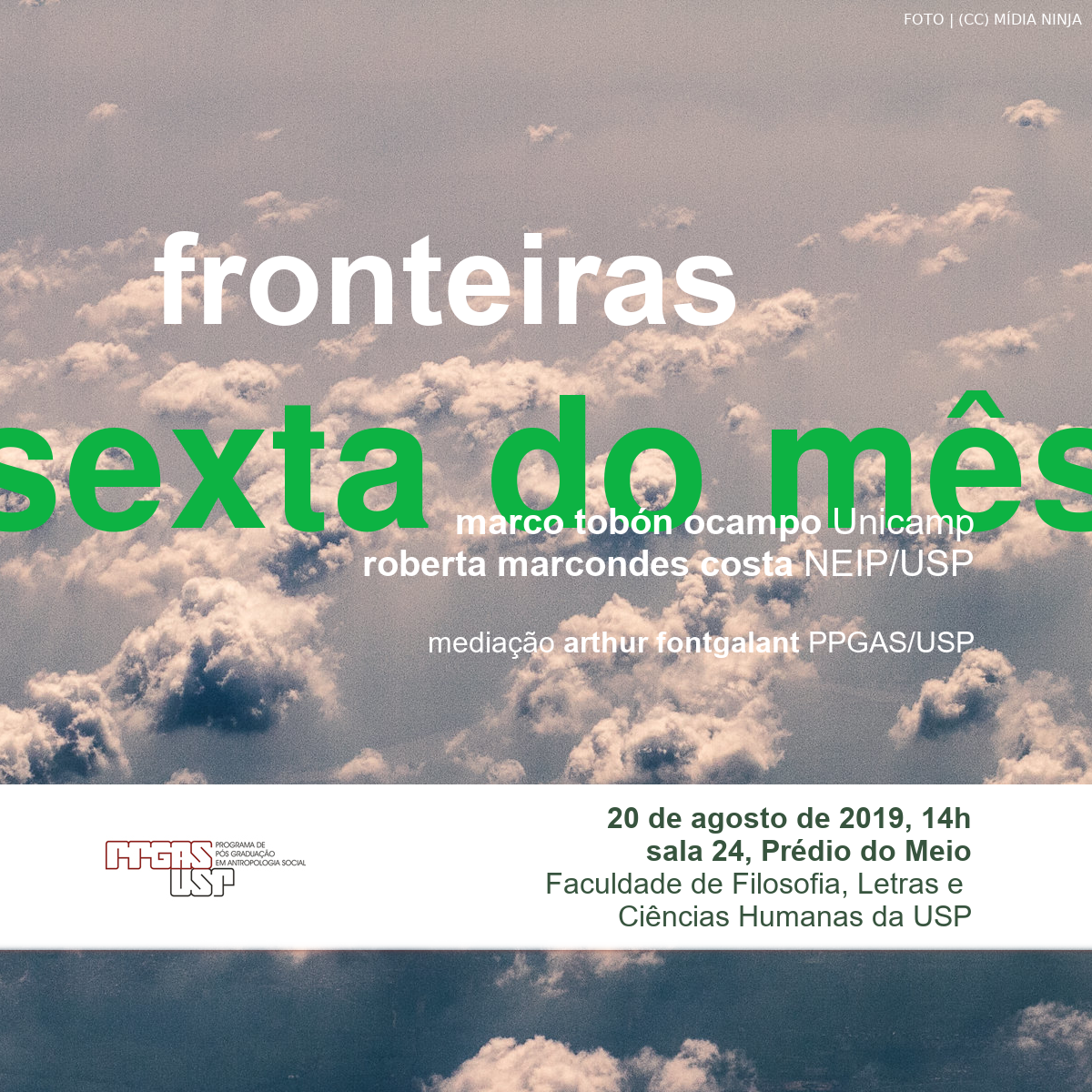with Marco Tobón Ocampo (Unicamp) and Roberta Marcondes Costa (NEIP / USP)
Mediation: Arthur Fontgalant (PPGAS / USP)
Who owns the land? Who has the right to claim parts of it and the various beings that inhabit it? Who determines its distribution or division? ”Asks philosopher Achille Mbembe before a world that limits movement and reinforces borders. Borders increasingly become spaces for reinforcing and reproducing vulnerabilities, for imprisoning ideas and movements. But what are borders?
Among geopolitical and symbolic meanings, borders are commonly read as limits, boundaries, contiguous spaces. In addition to the demarcation of spatialities, the notion of frontier also produces and accentuates vulnerabilities, limits movements, encodes bodies and relationships, seeks to control becoming and intensities. The fact is that the notion of frontier has long moved anthropological thinking, in different forms and in different fields.
While the ethnographies produced in the so-called territorial “frontier regions” pursue this notion, demonstrating both their permeability through the transit of people and collectives and the contingency of relations between lands and their people, Anthropology itself is produced by producing its own borders, mobilizing objects and issues that stabilize and / or deconstruct theoretical, conceptual, methodological and disciplinary boundaries. If anthropological knowledge is inherently relational (Wagner, 1975), researchers' relations with other worlds make our discipline continually rethink and (re) invent its borders.
From gender studies to the Anthropology of the body and health; from scientific practices to native cosmopolitics, among other fields, Anthropology is faced with “frontier regions”, marked by codifications, movements, stabilizations and destabilizations. If anthropologies that attempted to identify boundaries between ethnic groups seem distant, the notion of boundary certainly does not seem to be an “endangered object” (Sahlins, 1997).
On the Friday of the month of September we want to think from the frontiers and we invite everyone, everyone and everyone to know some anthropological points of view around this notion, taking it as a datum of certain contexts of ethnographic research, as well as an object of conceptual reflection of our discipline.


